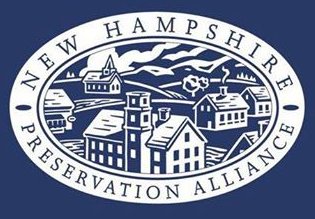Consider the Barn Tax Incentive for You or A Friend: April 15 Deadline
Barn Tax Incentive Use Continues to Grow With Over 556 Structures Enrolled
Madbury has joined a growing number of towns and cities using the state's tax incentive program to encourage historic barn preservation. RSA 79-D authorizes towns and cities to grant property tax relief to barn owners who can demonstrate the public benefit of preserving their barn or other older farm buildings, and agree to maintain them throughout a minimum 10-year preservation easement.According to data collected by the N.H. Department of Revenue Administration, by the close of 2017, 90 communities have enrolled over 556 historic structures in the program -- a 6.5 % increase over last year.
Cornish, Freedom, Deerfield, Sandwich and Plainfield lead the state with the number of structures protected; Cornish and Freedom with 20, Deerfield and Sandwich with 19 and Plainfield with 18. Alton, Concord, Fitzwilliam, Henniker, Hopkinton, Kensington, Kingston, Lancaster, Lee, Loudon, Lyme, Marlborough, Moultonborough, New Boston, North Hampton, Orford, Stratham, and Weare all have between 10 and 17 structures protected under the program.
“We are encouraged that 2017's percent increase in use of the barn tax incentive program is the highest since 2013,” said Beverly Thomas, Program Director, New Hampshire Preservation Alliance. “People across the state and their municipal leaders understand the significance of these historic structures, the opportunities to continue to use them in creative ways, and the value these barns bring to the scenic landscape of their communities,” she said.
Promoting use of this tool was part of the Preservation Alliance’s 52 Barns in 52 Weeks initiative in 2017 that helped save more than 52 barns and increase public awareness with educational forums, planning grants and promotion of this barn tax relief program.
More about RSA 79-D: Modeled after the state's open space discretionary easement program, the barn tax incentive allows municipalities to grant property tax relief to barn owners who can demonstrate the public benefit of preserving their barns or other old farm buildings while agreeing to maintain their structures through a minimum of a 10-year renewable easement. In return, the municipality provides tax relief of 25% to 75% of the full assessed value of the building and the land underneath it. And, importantly, the assessment will not increase as a result of maintenance or repair work that is performed while the easement is in effect.
Carl Schmidt, chair of the N.H. Historic Agricultural Structures Advisory Committee, is encouraged by the continued growth of the program but also noted that "this important tool is still under-utilized and I hope that more barn owners and municipalities embrace this opportunity to help save an essential part of our state’s character." He commented that municipalities with strong barn preservation advocates or an active Heritage Commission or other group that helps guide Selectboards or City Councils can make a big difference in the use of this valuable tool.
Barn owners interested in applying for the incentive to become effective in the coming tax year need to apply by April 15, 2018. Also of note is that easements that went into effect in the sixth year of the program (2008) for a ten-year term expire on March 31, 2018 unless a renewal application is received by the April 15 deadline. Property taxes on the relevant structures may then increase unless the easements are renewed. Applications for renewal, like new applications, must be submitted to your municipality on N.H. DRA form PA-36-A no later than April 15, 2018. Applications can be obtained from your town office or download an information packet with application from the Alliance’s web-site www.nhpreservation.org or call 603-224-2281. Applications are also available at www.revenue.nh.gov/forms/2010/documents/pa-36a.pdf.
The New Hampshire Division of Historical Resources and the N.H. Historic Agricultural Structures Advisory Committee work with the Preservation Alliance to provide barn assessment grants, publications, tours and workshops, an information network, and a voluntary survey program. The N.H. Historic Agricultural Structures Advisory Committee was established by state legislation in 1999 to support the preservation of N.H.’s historic barns and agricultural structures. The committee is comprised of representatives from state agencies, non-profit organizations and agricultural leaders.
Learn more about the preservation saga of this barn that is enrolled in the RSA-79D program here.

